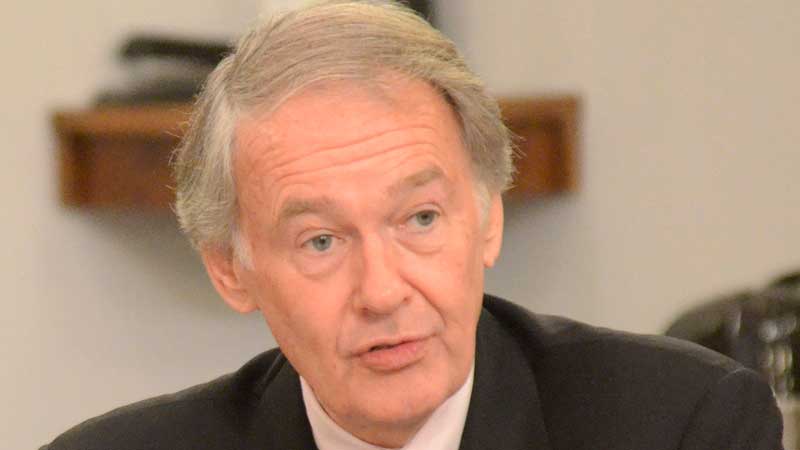Democratic Sens.: Kids TV Mandate Must Stay

The smarter way to stay on top of broadcasting and cable industry. Sign up below
You are now subscribed
Your newsletter sign-up was successful
Led by children's TV legislation author Sen. Ed Markey (D-Mass.) a group of Democratic senators have called on the FCC to leave its kids TV mandates in place.
Also signing the letter, which was sent to the FCC chairman and other commissioners, are Senators Bill Nelson (D-Fl.), Richard Blumenthal (D-Conn.), Catherine Cortez Masto (D-Nev.), Kirsten Gillibrand (D-N.Y.), and Jack Reed (D-R.I.).

‘Kid Vid’ rules remain important today, especially for the many underserved families who rely on free broadcast stations for educational content,” they wrote. They also worked in an implicit criticism of broadband speeds and pricing, other FCC sore points with Dems on the broadband deployment and net neutrality fronts.
Markey's Children's TV Act was adopted in 1990 and the FCC's implementing rules in 1996.
“Many families cannot access or afford the broadband speeds necessary for streaming online video and have trouble paying for monthly pay-TV subscription services," the senators wrote. "The ‘Kid Vid’ rules (and especially the mandatory programming hours requirement) make sure that these children have access to quality content to help them learn and thrive in school.”
They also said weakening the rules could lead to the end of limits on commercial duration and mandates on separation between advertising and programming content--the sort of host-selling that was common on TV before the rules. Given that the separation is blurring in online videos, they argue, broadcasters must be held to their current higher standard.
Republican FCC Commissioner Michael O'Rielly has been charged by chairman Ajit Pai with reviewing the kidvid rules with an eye to updating/changing them. He hopes to have a proposal by the end of the year, so there is plenty of time for folks to weigh in for and against.
The smarter way to stay on top of broadcasting and cable industry. Sign up below
O'Rielly has suggested that in a world of plentiful kids video on a variety of platform, including over cable and over the top, it may be time to scrap mandates like three hours per week at specific times, only in blocks of at least a half-hour duration. But it remains an inquiry and he has told B&C he is keeping an open mind and soliciting input.
Related: O'Rielly Takes Aim at KidVid Mandate
O'Rielly has called the KidVid rules "ineffective and burdensome requirements currently imposed on our nation’s broadcasters to air a certain amount of educational and informational children’s programming on a weekly basis." That is the requirement that TV stations air at least three hours per week of core educational/informational children's TV programming in at least 30-minute blocks.
As a former Hill staffer, O'Rielly also says the mandates were never the intention of Congress--the FCC came up with them in rules implementing the Children's Television Act--but some major members of that body clearly disagree, including the bill's author.
Jeff Chester, executive director of the Center for Digital Democracy, which was instrumental in pushing for creating the three-hour mandate, has called the suggestion the FCC should scrap it a form of "digital highway robbery—to steal from kids in order to allow TV giants to make even more profits from shows filled with commercials."
Contributing editor John Eggerton has been an editor and/or writer on media regulation, legislation and policy for over four decades, including covering the FCC, FTC, Congress, the major media trade associations, and the federal courts. In addition to Multichannel News and Broadcasting + Cable, his work has appeared in Radio World, TV Technology, TV Fax, This Week in Consumer Electronics, Variety and the Encyclopedia Britannica.

